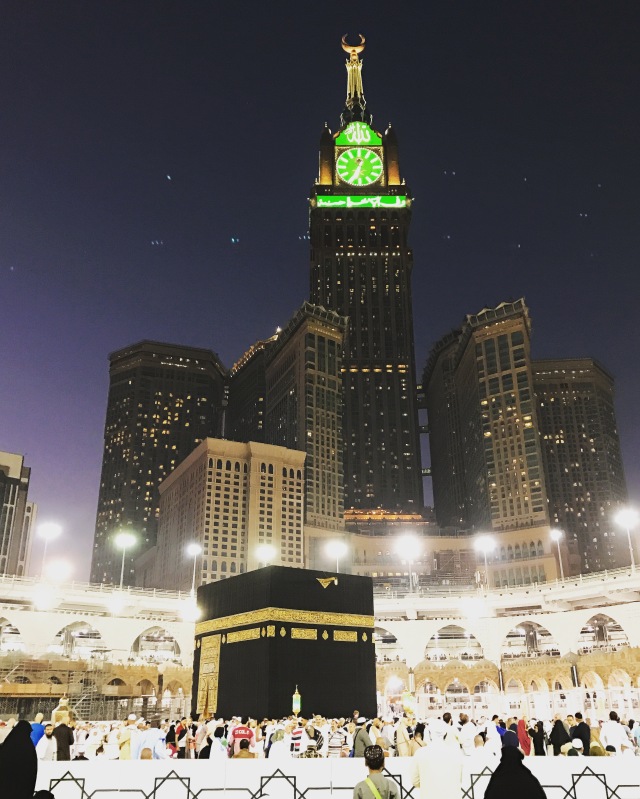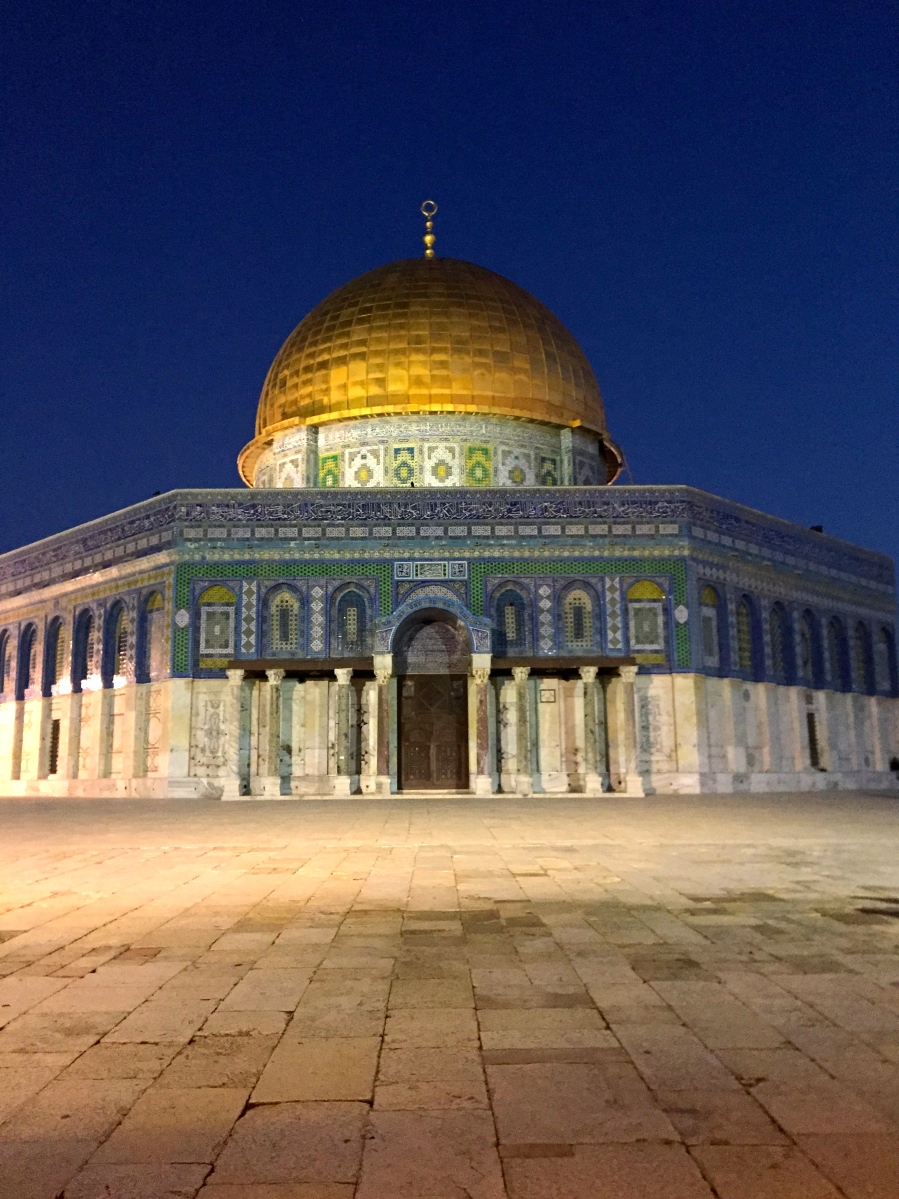
Missing Makkah


Originally published in the Huffington Post:
http://www.huffingtonpost.com/falak-zaffer-ghatala/when-satan-isnt-the-bad-g_b_10889654.html
This past Ramadan I was on a spiritual high. I felt the power of prayers, fasting, charity, and enduring patience. Satan is supposed to be locked away in Ramadan and any sins we procured are considered to be purely from our own nafs (self). I believe this is the hardest test to endure in Ramadan. To realize what our own self is willing to do without the constant waswas (whispers) of Shaitan (Satan). So this Ramadan when we were being terrorized with multiple atrocities in Orlando, Istanbul, Baghdad, etc. There was no Satan! It was the pure evil of man shedding blood for unforetold reasons.
It constantly reminded me of the question the angels asked Allah (SWT) and I couldn’t grasp the resolution behind His divine puzzle.
“And [mention, O Muhammad], when your Lord said to the angels, “Indeed, I will make upon the earth a successive authority.” They said, “Will You place upon it one who causes corruption therein and sheds blood, while we declare Your praise and sanctify You?” Allah said, “Indeed, I know that which you do not know.”” (Qur’an 2:30)
It led me to question more about human kind? And before I knew it Ramadan was gone, Satan was back, and the killings were multiplied.
It seems as though we are doomed by our own self-destructing prophecy; but God does go on to inform the angels that He was giving human kind not only freewill but also knowledge of His other creations.
“And He taught Adam the names of all things…” (Qur’an 2:31)
That the destruction the angels feared was just a small part of what humans were meant to be. That perhaps God gave us knowledge to atone the sins of our freewill.
The knowledge to understand and question things, the knowledge to seek good from bad, the knowledge to know the right from wrong, and the knowledge to recognize His other creations.
We are all different no doubt but the first thing God taught Adam (AS) was to learn the names of His other creations.
So what is it about us humans that we have disregarded the basic principles of seeking and understanding the creations of Allah (SWT)? That we have lost our sense of right and wrong? That we have forgotten that ‘justice’ is one of the basic guiding principles in the Qur’an?
“O you who have believed, be persistently standing firm for Allah, witnesses in justice, and do not let the hatred of a people prevent you from being just. Be just; that is nearer to righteousness. And fear Allah; indeed, Allah is Acquainted with what you do.” (Qur’an 5:8)
…And that in order to be ‘just’ we must first learn about the other side.
This segmentation, this constant disregard of others is blinding us from true justice. It is making us take sides, and causing even more hatred towards one another other.
“O you who have believed, be persistently standing firm in justice, witnesses for Allah, even if it be against yourselves or parents and relatives. Whether one is rich or poor, Allah is more worthy of both. So follow not [personal] inclination, lest you not be just. And if you distort [your testimony] or refuse [to give it], then indeed Allah is ever, with what you do, Acquainted.” (Qur’an 4:135)
I guess my plea to humankind is to seek knowledge, to be open-minded, and to try and learn about the ‘other’ before passing judgment. I am sure I am guilty of this myself, but I am hoping we are able to move beyond our prejudices to realize that we are but mere creations!
The Muslims, the Hindus, the Christians, the Jews, the atheist, the blacks, the whites, the gays, the lesbians, the transsexuals, the poets, the Sufis, the politicians, the lawyers, the doctors, the cops, the Trumps… All of Us!
We all have some good in us. We all have the power to seek knowledge of the other.

Originally published in the Huffington Post:
http://www.huffingtonpost.com/falak-zaffer-ghatala/using-religion-for-peace_b_9682640.html
You can only fight a war you believe in. Even if it isn’t for ideals, it must be on some level worth your individualistic need and time. What if we could strive for peace using the same narrative?
What if we could all believe that working for peace somehow was worth our individualistic need and time?
I visited Israel and Palestine this past December (2015). I had the opportunity to meet with several dignitaries, one being Yossi Klein Halevi. Yossi is an amazing author who is genuinely trying to bridge the Jewish-Muslim divide. A line from his book ‘At the Entrance to the Garden of Eden’ struck a chord with me. It said:
‘For peace: you must be willing to enter dangerous territories and have “courageous indifference to the judgment of your own communities”, who are unwilling to make peace with the enemy.’
I chose to visit Israel and Palestine because I wanted to hear both sides of the dialogue. I sought to understand the lives of my Palestinian and Jewish friends close to home. Comprehend from peace negotiators and researchers the challenges and frustrations everyday people faced. I wanted to see firsthand how failed peace attempts affected the morale of humans living on either side. For a more selfish reason however, I really wanted to visit Jerusalem.
Jerusalem the holy city of Prophets and Kings. The city of crusades and spiritual & religious enlightenment, a place where most people see conflict, I was naïve enough to see a semblance of cultures, intermingling, becoming one.
What I loved the most about Jerusalem also happens to be the reason for all the conflict. Church bells going off right after the ‘adhan’ (the Muslim call to prayer), worshippers of three different faiths covering their heads, seeking peace in the divine, walking in devotion overcoming their fears.
I met with Israeli Arabs, Arab Israelis, Christian Arabs, Jewish Arabs, and even Palestinian Israelis. Pretty much any multitude of combinations you can sum up. But mostly I met with every day people.
People who just wanted peace – kids who just sought brilliance through education, and folks who pursued spirituality. Individuals who went beyond their everyday difficulties of crossing checkpoints, braving knife attacks, and enduring aftermaths of missile attacks, to achieve some form of normalcy.
No matter your cause of who is right and wrong, no matter your reasoning of the discourse. No matter your side; looking at these relentless people striving towards normalcy, we must gather some form of hope.
We must realize that, as we foster our religious differences, we need to start focusing on religious commonalities. Considering that religion can be a medium for peace.
Understanding that it isn’t about ‘My religion’ or ‘Your religion’, but rather it is ‘HIS religion’.
For God has sent down His religion for all of humanity and with the sole purpose of upholding our duty towards good deeds.
“O mankind! We have created you from a male and a female, and made you into races and families so that you may know each other. The most honored of you in Allah’s sight are those who best keep their duty.” (Qur’an: 49:13)
“[He] who created death and life to test you [as to] which of you is best in deed – and He is the Exalted in Might, the Forgiving.” (Qur’an 67:2)
Recognizing that these ‘Three faiths’ collide in ‘One city’ for ‘One GOD’.
And realizing that it isn’t about ‘My land’ or ‘Your land’, but rather, ‘We are a part of this land’, and will someday return to it.
“Every person has to have two pockets and in each pocket they have to carry a different note. And the note in one pocket says the universe was created for me. And in the other pocket the note says I am just dust and ashes.” (Rabbi Jonathan Spira-Savett)